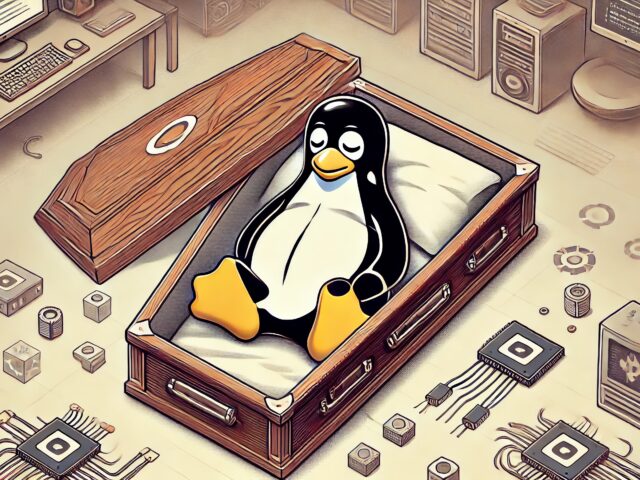What happens to Linux when Linus Torvalds dies?

The Linux kernel is at the heart of countless operating systems, powering everything from smartphones to servers. At the center of its development for decades has been Linus Torvalds, a name synonymous with the project itself. But what would happen to the Linux kernel if Linus Torvalds were to suddenly pass away?
First, it’s crucial to recognize that while Torvalds is the most prominent figure in Linux development, the kernel itself is the product of a vast, global community of developers and maintainers. Over the years, Torvalds has overseen the direction and quality of the kernel, ensuring the code adheres to stringent standards and that the development process runs smoothly. However, he is not the only contributor by any stretch. Thousands of developers worldwide contribute code, bug fixes, and improvements to the project.
The Linux kernel development community is structured in a way that allows it to function without a single point of failure. While Torvalds plays a key role, he has delegated authority over different subsystems to trusted lieutenants. These individuals oversee specific areas of the kernel, making decisions and maintaining high standards in their respective domains. This hierarchy ensures that even without Torvalds, the project would continue under the stewardship of these maintainers.
In the event of Torvalds’ death, the leadership of the Linux kernel would likely transition to one or more of these senior maintainers. The Linux Foundation, an organization that supports and promotes the project, could play a role in coordinating this transition. The development would move forward with little interruption because of the established processes, well-maintained code, and the kernel’s open-source nature.
The community surrounding Linux is known for its collaborative spirit, which means discussions and decisions about the future direction of the kernel would involve key maintainers and contributors. While there might be a period of adjustment, the kernel’s development pace would likely remain steady. Over the years, Torvalds himself has taken breaks, with others stepping up to manage kernel releases in his absence -- a sign that the development model is already designed to accommodate leadership changes.
Long-term, the Linux kernel might evolve to reflect new leadership styles and priorities. While Torvalds’ unique blend of expertise and blunt communication has shaped the kernel’s culture, his absence could lead to a shift in tone or processes. That said, the fundamental principles of open-source development, peer review, and a meritocratic approach would remain intact, ensuring the kernel continues to thrive.
And so, while Linus Torvalds’ contribution to the Linux kernel is immeasurable, the project is built to survive without him. The established network of maintainers, combined with the global developer community, would keep the kernel’s development on track. The death of Torvalds would certainly be a somber moment for the tech world, but it wouldn’t spell the end for Linux -- instead, it would mark the beginning of a new chapter in its development.
